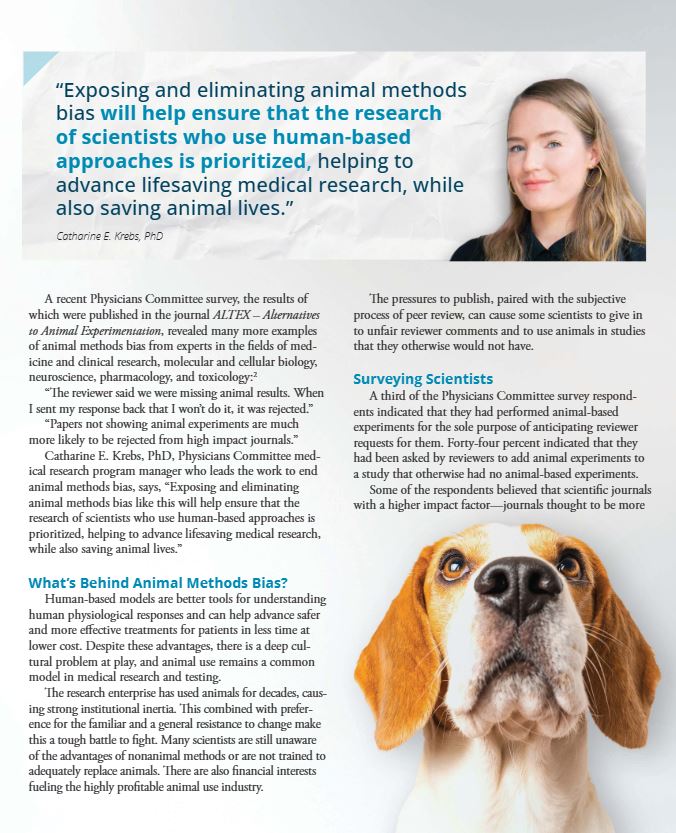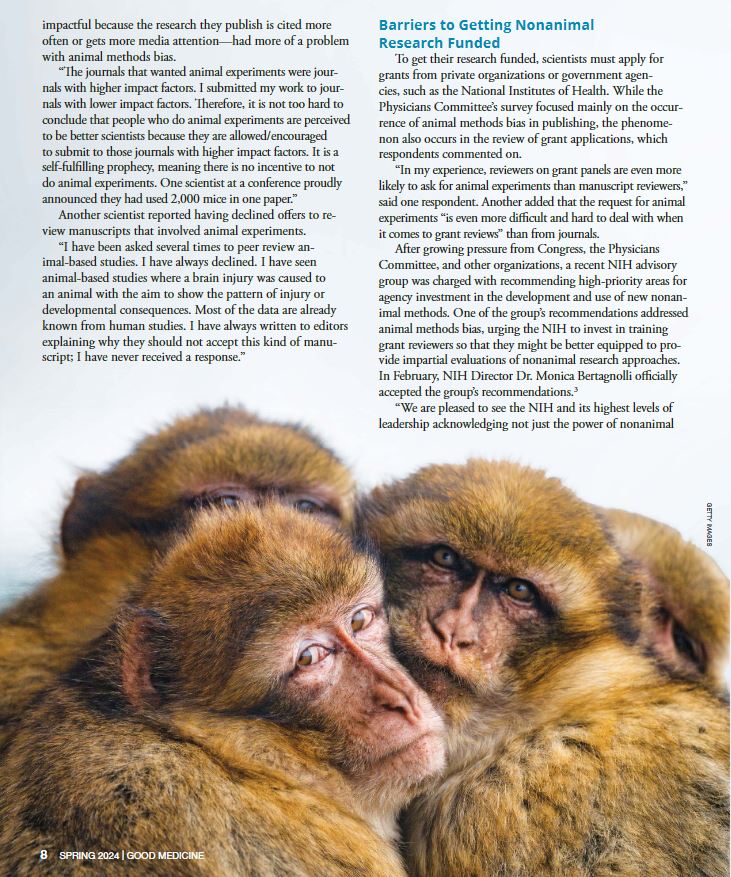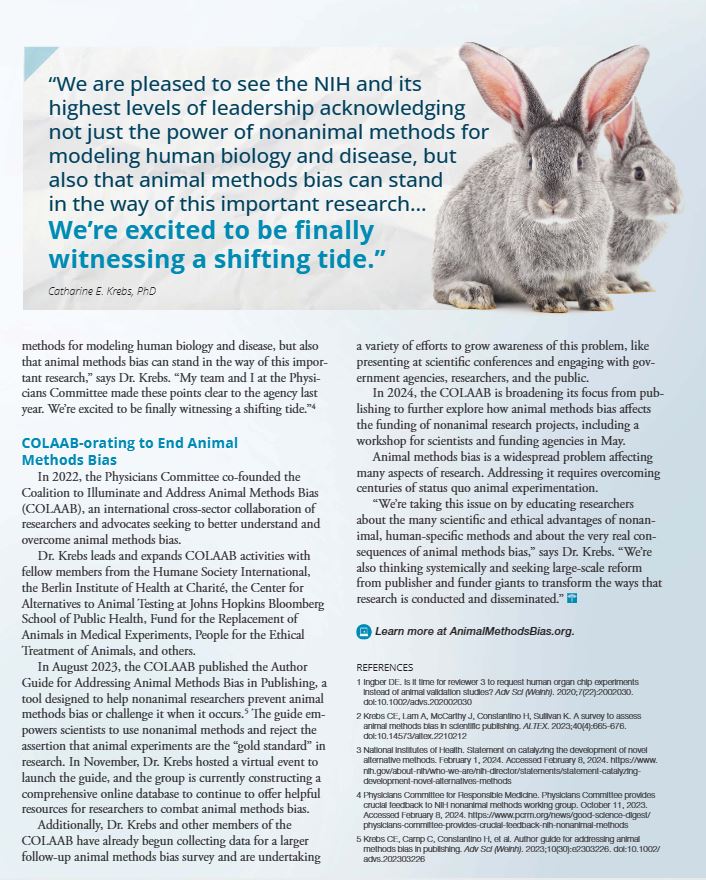“There are no mouse experiments in this
study; therefore I reject it for this journal.”
This is the response that one scientist re-
ceived from a peer reviewer after submitting
a study for publication. While this response
may seem surprising, it is not uncommon for scientists who use
nonanimal methods to be unfairly evaluated.
Some funders, grant reviewers, and journal editors have
an unfounded preference for animal-based research methods
despite the availability of more ethical and effective nonanimal
methods, including human clinical trials or studies using organ
chips or computational models.
“The problem mainly lies in the fact that many animal
models are physiologically irrelevant when considering human
disease, and thus, demanding use of a poor animal model for
the sole sake of ‘satisfying Reviewers’ should be discouraged,”
says Donald Ingber, PhD, who founded the Wyss Institute at
Harvard University, which pioneered organ-on-chip technology.




